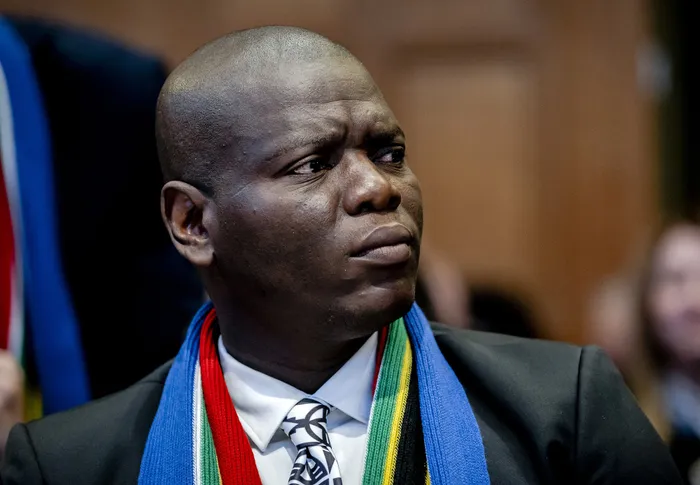India’s role in keeping peace in Africa

International Relations Minister Ronald Lamola said the United Nations remains central in the collective global efforts towards addressing global challenges and threats to peace and security, addressing poverty and under-development and ensuring the protection of human rights.
Image: File
India’s External Affairs Minister Subrahmanyam Jaishankar highlighted the country’s commitments to supporting Global South nations in building their peacekeeping capacities at the inaugural ‘Conference for Women Peacekeepers from the Global South’ in February.
Since the 1950s, India has contributed over 290,000 peacekeepers across more than 50 UN Peacekeeping missions and the country remains the largest Troop Contributing Country with more than 5,000 Indian peacekeepers deployed in nine of the eleven active missions, often in challenging and hostile environments.
Jaishankar said this deployment has a singular focus - the advancement of global peace and security.
“India strongly believes that peacekeeping is an effective instrument in the maintenance of international peace and security. This year is of particular importance, as two significant events will take place: the Peacekeeping Ministerial in Berlin and the Peacebuilding Architecture Review in New York.
“India remains committed to supporting Global South nations in building their peacekeeping capacities. Through initiatives led by the Centre for UN Peacekeeping, India will continue to offer training and capacity-building programs, including courses specifically designed for women peacekeepers, as we did with ASEAN countries in 2023,” Jaishankar said.
Indeed, as South Africa prepares to host the G20 Leaders’ Summit in November as part of its historic Presidency of the G20, peace and peaceful resolution to painful global conflict, is one of the priority issues not only for Africa but the Global South and the rest of the world.
Conflict has a destabilising effect on the globe but affects Global South countries immensely, taking a toll on their economies, trade and polarising countries as they are forced to choose sides as they aim for multilateral relationships.
In September, International Relations Minister Ronald Lamola, speaking at the second G20 Foreign Ministers’ meeting, under the theme “The United Nations at 80: reaffirming peace as a path to sustainable development”, said 80 years since its establishment the United Nations remains most central in the collective global efforts towards addressing global challenges and threats to peace and security, addressing poverty and under-development and ensuring the protection of human rights.
“In an international environment plagued by the ills of poverty, inequality and under-development, rising geopolitical tensions and increasing conflicts, environmental devastation, escalating trade tensions, and growing threats to multilateral cooperation, we must work together to ensure our aspirations of a peaceful and prosperous society,” Lamola said.
He stressed the point that peace and development have always been interdependent and without peace there can be no sustainable development.
Lamola also highlighted that investments in economic development and inclusive growth can contribute to a more peaceful environment.
“As the global community, investment in peace and collective collaboration are crucial necessities for growth, stability and sustainable development.”
Part of peace and development has seen countries looking to improve their defence capabilities in the face of piracy, terrorism, and potential conflicts.
India is increasingly moving towards becoming less reliant on imports and the country’s “Make in India” campaign also extends to its defence capabilities, fostering the promotion of local solutions for defence and aerospace requirements while focusing on self-defence.
Indian Prime Minister Narendra Modi earlier this year said the country was being recognised as a reliable and responsible partner across the world and especially in the Global South.
“In shaping global security, economics and geopolitical dynamics, a maritime nation like India is going to play a huge role,” he said on India’s role in helping countries to bolster their naval defense in the Indian Ocean Region (IOR) due to the region’s strategic importance as a vital trade route, a hub for global energy transit, and a region of growing geopolitical competition.
During Modi’s recent visit to Ghana, one of West Africa’s most influential democracies, both countries agreed to improve their cooperation in defence.
The countries explored defence cooperation in the context of Ghana’s concerns related to terrorism from the Sahel region and piracy in nearby seas.
India promised greater support in terms of equipment, training of personnel and to be able to source equipment from India.
It is clear that amidst conflict and tension, countries must foster international cooperation for a peaceful world towards sustainable development, while strengthening cooperation and rebuilding trust in multilateralism.
* Dr Govender is an academic and a keen observer of issues related to international relations.
** The views expressed do not necessarily reflect the views of IOL or Independent Media.